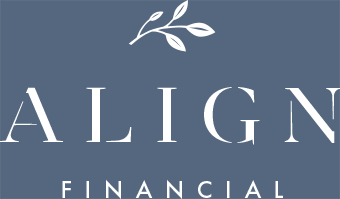For most of us, January is a time for making resolutions and setting goals for the year ahead. Indeed, it feels as if we begin each new year with a clean slate. The turn of the calendar means we’re suddenly in a better position to be the best possible versions of ourselves.
In reality, we all know that New Year’s resolutions typically go by the wayside by Valentine’s Day. And those lofty goals we set for ourselves are quickly abandoned for our comfort zones.
Perhaps a better way is to simply evaluate where you are at the beginning of the year. Then, use that as a starting point for where you ultimately want to be. This gives you a baseline, so you can measure your progress throughout the year and build momentum along the way.
Whether you seek to make improvements to your health, your relationships, or your finances, it helps to give yourself as many tailwinds as you can. In the spirit of progress over perfection, I’m sharing six key metrics you can use to assess—and improve—your financial health in 2022.
Check Your Financial Health Vitals
Just like with your physical health, there are certain vital stats that you can check to assess your financial health and wellbeing.
#1. Net Worth
Net worth is simply the sum of your assets minus the sum of your liabilities. If you’re making good choices when it comes to your finances, like saving, taking on less debt, and sticking to your investment plan, your net worth will improve. This simple truth is why we believe net worth is an important measure of your overall financial health.
If you don’t know your net worth, don’t worry. Here’s a simple, step-by-step action plan you can follow to calculate your net worth and improve it over time.
First, tally up the value of all your assets—for example, your home and other property, investment accounts, and anything else you own that has financial value. Then do the same for any debts you owe, whether you have a mortgage, outstanding loans, or lingering credit card debt. The difference between these two numbers is your current net worth.
Next, identify the factors that are benefiting your net worth, as well as any areas that can be improved. For instance, perhaps you’re saving enough but you’re under-invested. Or maybe a financial setback depleted your savings. This exercise isn’t about beating yourself up for not being perfect. Instead, it’s to make you aware of any trends—positive or negative—in your financial habits that may be affecting your financial health.
Finally, choose one new habit or hack to improve your net worth over the coming months. As an example, try automating your savings and investment account contributions. Or avoid stores that tend to trigger overspending, so you can focus on paying down credit card debt.
You may be surprised how quickly your financial health begins to improve by simply tracking your net worth, being aware of your financial habits, and making conscious decisions about your money.
#2. Credit Score
Your credit score is one of the most powerful financial tools you have available to you. A strong credit score can save you a substantial amount of money over your lifetime. On the other hand, a weak credit score can make anything from getting a credit card to buying a house challenging and expensive.
As a measure of your financial health, your credit score indicates how responsible you are with repaying and managing debts. It also determines how likely you are to qualify for a loan under the best terms.
Someone with a credit score greater than 800 will likely have no issues obtaining a loan with low interest rates. However, if your credit score is below 670, you may struggle to obtain any type of credit financing without collateral or very high interest rates.
To obtain a great credit score, be sure to make your debt payments on time and try to keep your credit utilization below 30% of what’s available to you. In addition, check your credit report at least annually to avoid setbacks due to identity theft or fraud.
#3. Debt-To-Income Ratio
Your debt-to-income ratio reveals how much of your monthly income goes towards paying off debt. This includes good and bad debt—for example, mortgage payments, student loans, and credit card debt. Generally speaking, the lower your debt-to-income ratio, the better your financial health.
Debt-to-income becomes increasingly important as you near retirement since you’ll need all available financial resources to support your lifestyle after you stop working. To get your debt-to-income ratio to a healthy level, make sure you’re diligent about paying down unnecessary debt.
Alternatively, you can lower your ratio by increasing your monthly income. However, depending on your circumstances, your income level may be harder to control.
#4. Emergency Fund
An emergency fund is just that—a way to cover unexpected financial setbacks, such as a sudden job loss or a medical bill that isn’t covered by insurance. It’s generally advised to have at least six months of living expenses set aside to cover these types of events. If you’re self-employed or your income is less predictable, you may want to have an even larger cash reserve set aside.
One benefit of an emergency fund is it allows you to recover more quickly from a financial setback. If you’re unprepared, taking on debt or dipping into retirement savings can undo years of progress towards your financial goals.
To build a cash reserve, first set your savings target. How much will you set aside each month or each paycheck for your emergency fund? Once you come up with this amount, set up automatic transfers from your primary checking or savings account to your designated cash account. Alternatively, you can set this up via direct deposit if your employer allows.
#5. Retirement Savings
Your retirement savings is an important metric of your financial health if you plan to stop working someday. As lifespans and healthcare expenses increase, having sufficient financial resources later in life is essential.
According to a 2020 TD Ameritrade report, nearly two-thirds of 40-somethings have less than $100,000 in retirement savings. Meanwhile, 28% of those in their sixties have less than $50,000. Compare this to the rule of thumb that you’ll need about 80% of your annual income in retirement to maintain your lifestyle, and it’s easy to see why so many people outlive their savings.
Indeed, the earlier you start saving for retirement, the better. That’s because you can let the stock market do most of the work for you. However, if you’re behind on your retirement savings, it’s never too late to catch up. If you’re over 50 years old, the IRS allows you to make catch-up contributions to help bridge the gap.
#6. Financial Stress Level
Lastly, your financial stress level is a critical measure of your financial health. If your finances are keeping you up at night or affecting your physical health, you may need to make some changes.
According to Fidelity’s 2021 Women and Investing Study, 34% of women say their financial situation keeps them up at night at least one a month. However, 86% of women surveyed agreed that having their investments managed by professionals makes life less stressful.
Of course, there are other ways to feel good about your money. For example, upgrading your mindset, being more intentional about your spending, and limiting exposure to financial media can help you develop a healthier relationship with your finances.
Improving Your Financial Health in 2022
Regardless of your financial circumstances, it can be helpful to measure yourself along these six metrics regularly. Then, consider what changes you can make to your financial habits and decisions to improve your overall financial health.
Remember: financial success isn’t about being perfect. It simply requires you to be aware of your financial situation and make the best decisions you can based on where you are today.
If Align Financial can help you improve your financial health and chart a course toward financial freedom, please schedule a call to see if we’re a fit. We’d love to hear from you.













